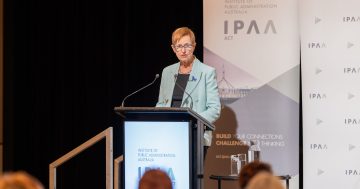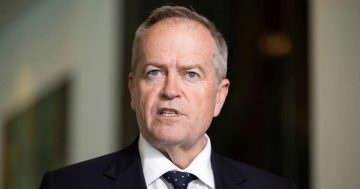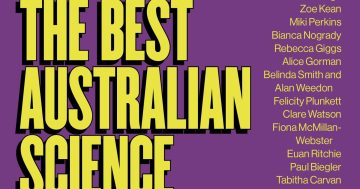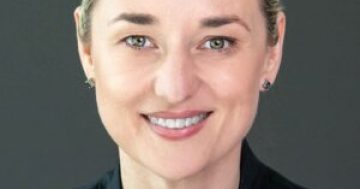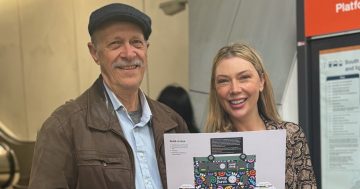Yonason Goldson* says it may not be from an “expert.”
 Legend has it that, in ancient Greece, Apelles of Kos displayed his paintings in the public square to elicit comments and suggestions from passersby.
Legend has it that, in ancient Greece, Apelles of Kos displayed his paintings in the public square to elicit comments and suggestions from passersby.
On one occasion, a shoemaker observed an inaccuracy in the design of the subject’s sandals.
Apelles took the correction to heart and revised the painting.
When the shoemaker returned and saw that the artist had heeded his advice, he began offering other objections to the work.
Apelles responded pithily: “Critique only the sandals.”
Twenty-three centuries ago, nothing more was needed to silence an uncredentialed quibbler.
Today, it’s considerably harder to stifle would-be pundits and cognoscenti.
In this post-truth era, when facts and logic get shunted aside in favour of impressions and feelings, authentic seekers of knowledge and wisdom recognize the danger posed by this week’s addition to the Ethical Lexicon:
Ultracrepidarian (ul·tra·crep·i·dar·i·an /uhl-truh-krep-i-dair-ee-uhn) adjective
Noting or pertaining to a person who criticizes, judges, or gives advice outside the area of his or her expertise.
There’s no mystery how we got here.
The internet is an extraordinary tool, but to find a needle of insight you must often sift through haystacks of mis- and disinformation.
Wikipedia is a wonderful resource, but because anyone can post there, only fools believe what they read there without diligently verifying the sources (attribution: Abraham Lincoln).
Intellectual inertia
It may be simple laziness that inclines us to accept unsubstantiated reports and stories.
It may be confirmation bias, because we dearly love any factoids that confirm our preconceptions.
It may be the sense of power that comes from claiming truth is on our side without having to do the heavy lifting required to unearth reliable information.
But ultracrepidarianism rears its head more brazenly by the hour.
What’s your opinion about COVID-19 and vaccines? What’s your opinion about climate change? What’s your opinion about Damar Hamlin collapsing on the football field?
For most of us, the answers should be simple.
I don’t know, I’m not an epidemiologist.
I don’t know, I’m not a climate scientist.
I don’t know, I’m not a doctor of cardiology.
But pleading lack of expertise feels humiliating when the whole world seems filled with experts pontificating on every subject under the sun.
Illusions of expertise
Post-World War II, theoretical physicist Richard Feynman returned from a sabbatical in Brazil to find the whole scientific community embroiled in a great debate over the decay of subatomic particles.
Unable to follow the arguments on either side, the future Nobel Prize winner dug up the article that sparked the imbroglio and discovered that it was deeply flawed.
Apparently, none of the scientists debating the issue had bothered to read the original paper.
Abstract science is one thing.
But when it comes to business decisions, we would suppose that the dangers are so clear and present that ultracrepidarians would be unceremoniously shown the door.
It hardly requires an MBA to appreciate how bad information will sabotage a business strategy, tarnish a brand image, destroy a reputation, waste resources, increase costs, and cause missed opportunities.
Alas, no.
Astonishingly, the lack of attention extends to the vetting process at the highest levels.
CEOs of Bausch & Lomb, Radio Shack, and Yahoo! are just a few examples of candidates hired to prominent positions despite falsifying their résumés.
In many cases, the scandals following exposure cost the companies huge losses.
Most recently, George Santos was elected to the House of Representatives after concocting outrageous fictions about his record and his history.
How did these prevarications go exposed? The explanation can only be that little effort was made to uncover them.
If we don’t take responsibility to authenticate the stories we believe, we have only ourselves to blame when they prove unsubstantiated.
The numbers game
What makes the problem even more confounding is that even so-called experts demonstrate little basis for their expertise.
In his book Talent is Overrated, Geoff Colvin writes:
In field after field, when it came to centrally important skills—stockbrokers recommending stocks, parole officers predicting recidivism, college admissions officials judging applicants—people with lots of experience were no better at their jobs than those with very little experience.
In these examples, the error lies in conflating expertise with the power of prophecy.
The combination of good data and sound logic is not necessarily predictive.
Rather, its value comes from enabling you to clearly see both sides of the equation, weigh the relative costs, benefits, and risks so that you can make a reasoned and informed decision.
The true menace posed by ultracrepidarians, therefore, is not that they don’t know what they say they know.
It’s not even that they don’t care whether they know or not.
It’s that we don’t care.
A rabbi once observed that nothing is more irrelevant than the answer to a question that was never asked.
Ethics requires us to confirm facts, whether we are disseminating or consuming them.
No matter how convenient it might be to blindly rely on “experts,” the consequences of abdicating responsibility for our decisions will prove profoundly inconvenient for us, not for them.
Readers of a certain age will remember Clint Eastwood’s classic line as Inspector Harry Callahan: “A man has got to know his limitations.”
When we acquire the intellectual humility to know the limits of our own expertise and the intellectual courage to question the expertise of others, then we can proceed with confidence that the choices we make are as sound as we can reasonably expect them to be.
*Yonason Goldson is an award-winning podcast host, TEDx speaker, and author of Grappling with the Gray: An Ethical Handbook for Personal Success and Business Prosperity.
This article first appeared at fastcompany.com



